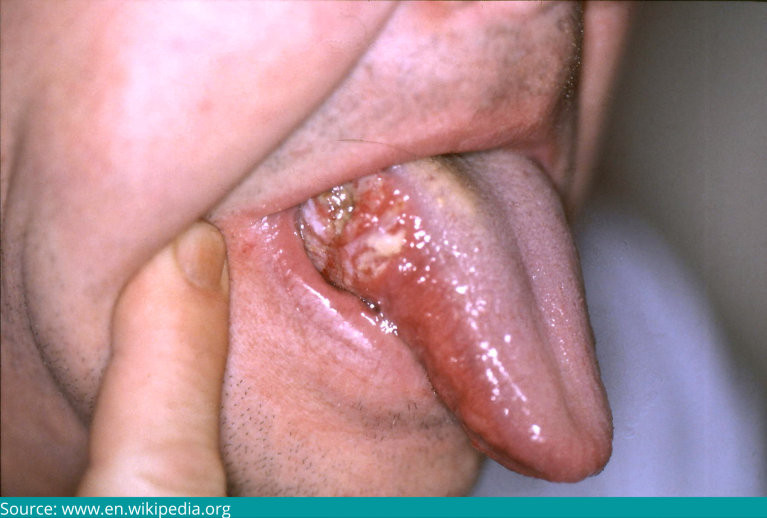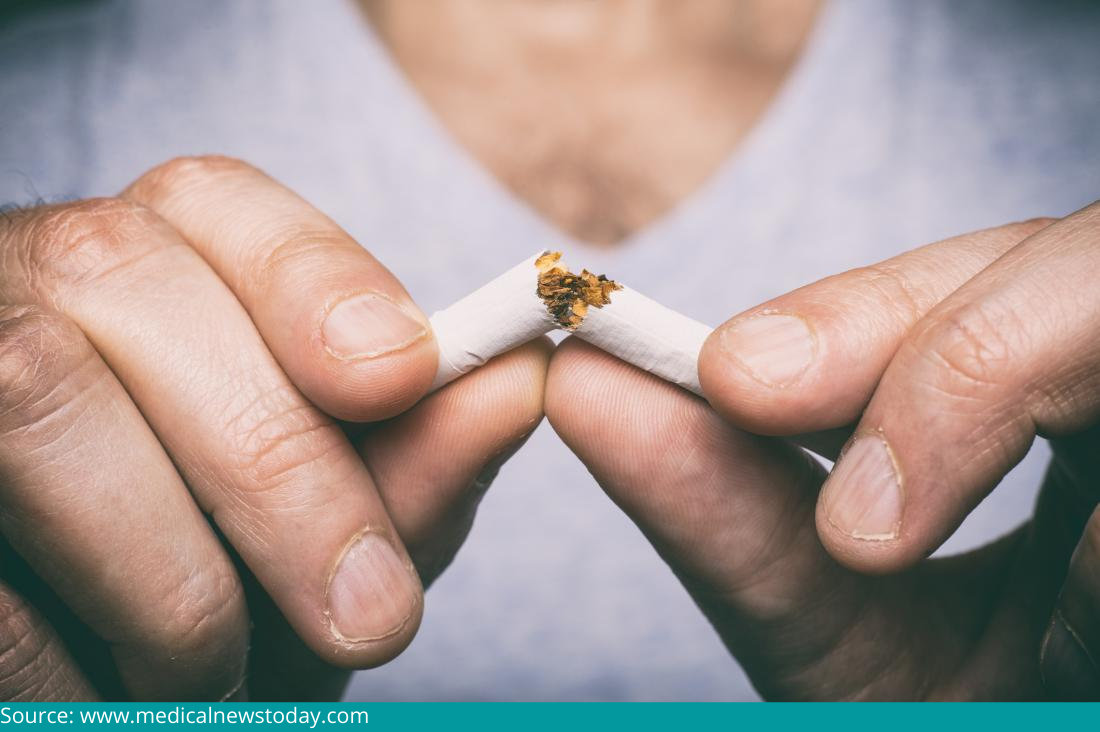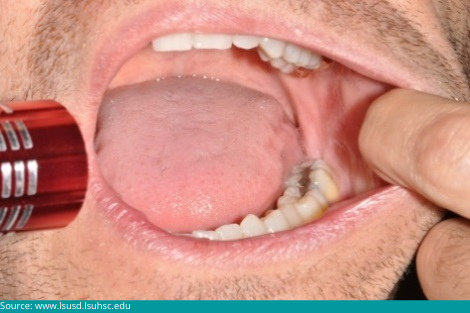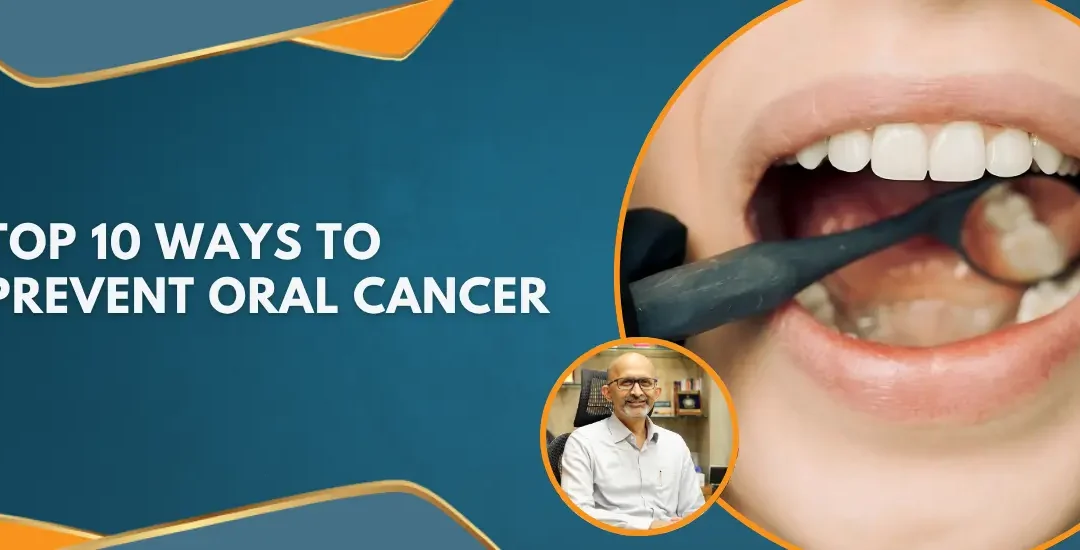We all know how important it is to brush our teeth twice a day and floss once a day, but what about our other orifices?
Do the same things that cause cavities and gum disease also lead to mouth cancer?
If you have ever wondered how to prevent mouth cancer, you are not the only one. Millions of people are afflicted by this disease every year, which is why prevention is so important.
The eminent cancer specialist Dr. Sandeep Nayak says that oral cancer is a complex disease that is more than just a bacterial infection or bad breath. It is a combination of risk factors, genetics, and personal habits that can lead to an oral cancer diagnosis.
Please keep reading to learn more about this common disease, its symptoms, risk factors, and ways to reduce your chances of getting mouth cancer.
What Is Oral Cancer?

Oral or mouth cancer is cancer that forms in the tissues of your mouth or throat. It is part of a more significant category of head and neck cancers. This cancer develops in the squamous cells of your lips, gums, tongue, roof or floor of your mouth, and the inner lining of your cheeks.
Oral cancers do not usually develop until many years after the damage has occurred. As a result, the earlier you catch any potential problems, the more likely they will be effectively treated.
What Are The Symptoms Of Oral Cancer?
Signs and symptoms of oral cancer include:
- A sore on your lip or mouth that is not healing
- A reddish or white patch inside your mouth
- Loose or shaky teeth
- A lump or growth inside your mouth
- Pain in your mouth
- Constant ear pain
- Difficulty or pain when swallowing
If you or your loved one is experiencing any of these symptoms, please speak with Dr. Sandeep Nayak, among the best surgical oncologists in India.
What Are The Risk Factors For Oral Cancer
Several risk factors can increase the likelihood of developing oral cancer. They include:
- A family history of cancer
- Tobacco use
- Chronic and excessive alcohol consumption
- Heavy caffeine consumption
- A long-term habit of chewing tobacco
- Frequent exposure to radiation from x-rays, CT scans, etc
- Regular use of smokeless tobacco products
- Poor oral hygiene practices
- Use of poorly fitted denture/oral prosthesis
- Infection with the HPV virus
Ways To Reduce Your Risk Of Developing Oral Cancer
Follow a good oral hygiene
Brushing and flossing your teeth at least twice a day is the first step to maintaining a healthy mouth. A germ-infested mouth can become a breeding ground for germs to cause infections. A filthy mouth cavity also harms your immune system and reduces your body’s ability to fight cancer.
Do not chew paan

The popular after-dinner treat ‘paan’ combines betel leaf with areca nut and other stimulant substances and is widely consumed in India. You may not know this, but it is among India’s primary causes of mouth cavity cancer.
Avoid chewing paan or any form of betel nuts, whether raw or processed, as it raises the risk of oral cancer.
Stop chewing tobacco
People who chew tobacco have a 5 – 25 fold higher risk of mouth cancer. Chewing tobacco has a significant risk of developing mouth cancer and should be avoided at all costs.
Quit smoking

Quitting smoking is one of the most preventative ways to reduce your risk of getting oral cancer. Not only will you be avoiding the risks associated with tobacco use, but you will also be reducing the risk of developing respiratory problems like emphysema or chronic bronchitis. Quitting tobacco use could even help cure some oral cancers with proper treatments.
Reduce exposure to UV rays
One way to reduce your risk of getting oral cancer is to limit your exposure to the sun. Exposure to ultraviolet rays increases the risk for many types of cancers, and it is crucial for people with fair skin or light hair color to avoid excessive sun exposure. Similarly, wearing sunscreen can help decrease the chances of getting cancer from UV rays.
Diet and nutrition
Another effective way to prevent or reduce getting oral cancer is following a healthy diet and nutrition. A healthy diet includes the types of food you eat, the number of calories you consume, and how regularly you eat.
It is recommended that your diet consist predominantly of fruits, vegetables, and whole grains. Consume foods high in folic acid, which include leafy green vegetables such as spinach and kale and chard and collards. Also, remember to drink plenty of water daily.
The accomplished oncologist Dr. Sandeep Nayak says that eating right can help with both prevention and reduction because it helps keep your body healthy and strong enough to fight off any potential cancer cells before they start multiplying.
Regular check-ups
Regular check-ups and screenings are essential. A Pap smear is one of the most effective ways to detect cancer early on and prevent it from developing into a more severe condition.
Visit an orthodontist every 6 months to get screened for oral cancer, especially if you chew or smoke tobacco. Sharp teeth have been linked to an increased risk of oral cancer due to frequent injuries to oral tissues; therefore, if you have 1 or more sharp teeth, please consult with a dental surgeon. Even otherwise, seeing a dentist every 6 months is an excellent way to maintain good oral health.
Be active
An active lifestyle will boost your immune system and lower your cancer risk. You can include walking, jogging, skipping, cycling, swimming, strength, or weight training in your daily activities.
A strong immune system is a key to fighting off many ailments and safeguarding your body and health overall.
Protect yourself from HPV infection of the mouth
Sexual transmission, in addition to lifestyle choices, is a risk factor for mouth cancer. Human papillomavirus (HPV) can be transmitted through unprotected oral sex or the exchange of reproductive fluids, resulting in oral cancer.
Moreover, despite the availability of numerous supplementary oral cancer screening devices and assays, none of them can currently spot HPV-positive oral and oropharyngeal malignancies early.
Conduct a self-exam every month

Oral self-exams, like breast self-exams, are an excellent approach to detecting and eradicating dangers early on. Examine your tongue’s back and sides thoroughly. Consult with your dentist right away if you notice (or feel) anything abnormal, such as lumps, bumps, painful places, or colored (red/white/grey) patches.
Conclusion

Dr. Sandeep Nayak is a top-notch cancer specialist with over 15 years of expertise in all areas of cancer and its treatment. He is a pioneer of robotic and laparoscopic surgery and is committed to improving the quality of his patient’s lives.


